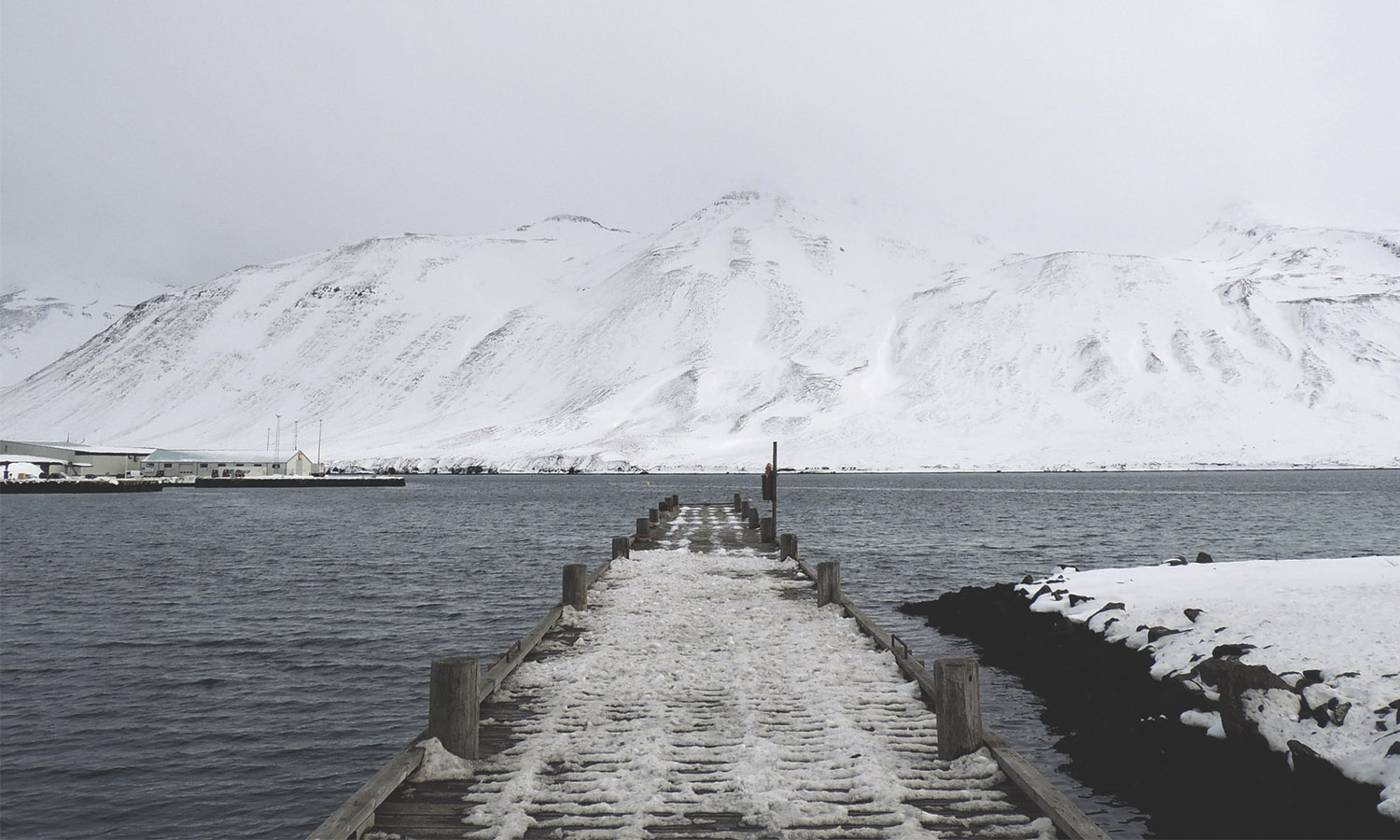Each month, American Express Essentials highlights one definitive literary work, old or new, and across any and all genres. The only determinant is quality: a book that makes life more vivid, more inspiring – a gifted piece of work you want to share. An absolute must-read.
Up this month is an immersive, suspenseful detective tale in the style of Agatha Christie: Icelandic author Ragnar Jónasson’s Snowblind, the first instalment of his “Dark Iceland” series.
An isolated town where no one locks their doors (“There’s no point, nothing ever happens around here”) is safe – until it isn’t. An attempted murder shakes the hauntingly beautiful Icelandic town of Siglufjörður, and its newest resident, recently appointed policeman Ari Thór Arason, sets his sights on solving the case. Of course, what this inexperienced case-solver doesn’t see coming is for the unsuspecting small town’s secrets to be piled as deep as the snow that covers its streets.
That’s the set-up for Snowblind, the first instalment in Ragnar Jónasson’s “Dark Iceland” series. The eerie, icy and remote landscapes of the island country – and, more specifically, the real-life town of Siglufjörður – set the scene for a masterfully crafted tale reminiscent of Agatha Christie’s best novels.
Of course, considering that Jónasson has translated so many of the late British writer’s tales into Icelandic, one can better understand where and how he pays homage to who was (is?) perhaps the greatest in the game of suspenseful storytelling. A clear example of such a nod? The policeman-detective bringing all the suspects together at the end for a final grand reveal.

The disquieting atmosphere is one reason why this book, as with any respectable suspense or detective tale, succeeds at keeping the reader glued to its pages. It begins as soon as our protagonist, who moves from the capital, Reykjavík, sets foot in his new home in order to begin a career in law enforcement. He leaves his serious girlfriend behind (in quite a selfish manner, but that’s for each reader to analyse) and steps into a dark and unrelenting winter, where snow never stops falling. Not long after his arrival, Ari suddenly finds himself trapped in the village whose only link to the rest of the world, a narrow mountain tunnel, has become impassable.
This feeling of entrapment and isolation whispers constantly throughout the story, and the chilling town (and its cruel weather) acts as a character all its own. Jónasson excels at painting a perfect picture of the desolate surroundings; the reader begins to understand how a character so young, so naive, can quickly become paranoid. The thick snowfall doesn’t just bury the town in itself, but also engulfs a whole cast of characters – each with their own secrets, each one more heartbreaking or cruel than the other. Only in such a place could the truth be buried so deep. Not knowing whom to trust or even whom to believe, the tension runs high.
One thing to be said about Snowblind: this is a character-driven detective tale. This starts with Ari, who – kudos to Jónasson – is the perfect creation to make this story engaging. In contrast to so many detective novels, where the protagonist is an old, oftentimes subdued, all-knowing expert, young Ari brings a sense of true vulnerability to the story. As a reader, we sympathise with him, even when he inevitably makes a bad call. We respect his determination and his tenacious desire to learn the truth. He’s an endearing figure – there is no darkness in him – and an undeniable rookie. Ari is unsure at times, he makes mistakes, and that makes him more real and interesting. You want to keep reading to find out what he’ll do next.
Next in line would be Hrólfur, a retired writer who is somewhat of an enigmatic national literary treasure. Then there’s Kristin, Ari’s girlfriend back in the capital, as well as Ugla, the piano teacher and inevitable new love interest. There’s a talented yet undervalued playwright, plus actors, townspeople, landladies… The tale offers no shortage of characters, and all are fully realised. All have some sort of hidden agenda, deeply held struggle or coherent motivation. Jónasson leaves no one behind; there are no cliché caricatures in this book. Of course, with so many well-rounded characters, it becomes harder for readers to guess who is guilty. The author proves through his skill at character building that we can never truly know the mind of another, no matter how long the relationship or how close.
As for the writing itself, one could say Jónasson’s prose is evocative, yes, but also sharp and cleverly paced. He takes just the right amount of time to set a scene, and he knows exactly when to let the plot unravel. This happens around the middle of the book, after he’s already woven a tapestry of possible culprits, grudges and memories. He makes sure to build the anticipation, keeping the reader at the edge of their seat. And he refuses to rush. If you’re expecting a fast resolution, turn away from this book, where the narrative unfolds almost methodically, revealing exactly what needs revealing at the exact right time.
Jónasson has a preternatural sense of timing and suspense. The crime that sets the story off, for instance, only really comes into focus halfway through. Of course, by then readers have probably already started drawing mind maps. This is not the book if you’re into jump scares or out-of-nowhere twists. If an immersive atmosphere is what appeals to you, however, you’re in for a treat. Adding to that is the book’s structure, which intertwines chapters in a present time with episodes narrating the crime (which one doesn’t really know, until one point, whether that’s in the past or future), keeping the reader intrigued until all of the pieces finally come together.
Further Reading
If Ragnar Jónasson’s work leaves you wanting more, you might want to reach for Truman Capote’s celebrated In Cold Blood, where, much like Snowblind, a remote, unassuming town (one where no one locks their doors) is shaken by a horrifying crime. And, of course, one cannot ignore the direct influences of Agatha Christie on the Icelandic writer’s storytelling. If you’ve never read anything by the undisputed “Queen of Mystery”, a good starting point could be Murder on the Orient Express or And Then There Were None. You’re likely to find that, once you go Christie, you won’t go back.














Sorry, the comment form is closed at this time.